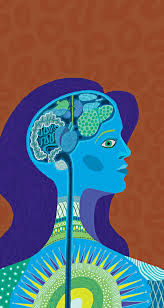The Effects of Caffeine: What You Need to Know
Caffeine is a widely consumed stimulant found in coffee, tea, energy drinks, and various other products. While many people enjoy the boost of energy that caffeine provides, it’s important to understand its effects on the body and mind.
One of the primary effects of caffeine is increased alertness and concentration. By blocking adenosine receptors in the brain, caffeine helps to prevent drowsiness and promote wakefulness. This can be particularly beneficial when you need to stay focused and attentive, such as during work or study sessions.
In addition to its stimulating effects, caffeine can also improve physical performance. It has been shown to increase adrenaline levels in the body, which can enhance endurance and strength during exercise. Many athletes use caffeine as a performance enhancer before competitions or intense training sessions.
However, it’s important to consume caffeine in moderation. Excessive intake can lead to side effects such as jitteriness, anxiety, insomnia, and digestive issues. Some individuals may also experience withdrawal symptoms if they suddenly stop consuming caffeine after regular use.
It’s recommended to limit caffeine intake to around 400 milligrams per day for most adults, which is roughly equivalent to four cups of brewed coffee. Be mindful of hidden sources of caffeine in certain medications, energy drinks, and even some foods like chocolate.
Overall, while moderate consumption of caffeine can have benefits for focus and performance, it’s essential to be aware of your individual tolerance levels and avoid excessive intake for optimal health and well-being.
8 Essential Tips for Enjoying Caffeine Responsibly and Healthily
- Limit caffeine intake to avoid negative side effects like insomnia and restlessness.
- Drink plenty of water when consuming caffeinated beverages to stay hydrated.
- Be mindful of hidden sources of caffeine in foods, medications, and supplements.
- Avoid consuming caffeine close to bedtime to prevent disruption of sleep patterns.
- Consider alternating between caffeinated and decaffeinated options for a healthier balance.
- Monitor your tolerance to caffeine and adjust your intake accordingly.
- Consult a healthcare professional if you have any underlying health conditions affected by caffeine consumption.
- Enjoy caffeinated beverages in moderation as part of a balanced diet.
Limit caffeine intake to avoid negative side effects like insomnia and restlessness.
Limiting caffeine intake is crucial to avoid negative side effects such as insomnia and restlessness. While caffeine can provide a temporary boost in alertness and energy, consuming too much can disrupt your sleep patterns and leave you feeling jittery or on edge. By being mindful of how much caffeine you consume throughout the day and setting limits on your intake, you can better manage its effects on your overall well-being and ensure a more restful night’s sleep.
Drink plenty of water when consuming caffeinated beverages to stay hydrated.
It is important to remember to drink plenty of water when consuming caffeinated beverages to stay hydrated. Caffeine is a diuretic, meaning it can increase urine production and potentially lead to dehydration if not balanced with adequate water intake. By pairing caffeinated drinks with water, you can help maintain proper hydration levels and support your overall well-being.
Be mindful of hidden sources of caffeine in foods, medications, and supplements.
It is crucial to be mindful of hidden sources of caffeine in various products, including foods, medications, and supplements. Caffeine can often be found in unexpected places such as chocolate, certain pain relievers, weight loss supplements, and even some cold medications. Being aware of these hidden sources can help you better manage your overall caffeine intake and avoid unintentional overconsumption, which could lead to unwanted side effects like restlessness or difficulty sleeping.
Avoid consuming caffeine close to bedtime to prevent disruption of sleep patterns.
Avoid consuming caffeine close to bedtime to prevent disruption of sleep patterns. Caffeine is a stimulant that can interfere with your ability to fall asleep and achieve restful sleep. By limiting your intake of caffeinated beverages or foods in the hours leading up to bedtime, you can promote better sleep quality and ensure that you wake up feeling refreshed and well-rested. Prioritizing good sleep hygiene practices, such as avoiding caffeine before bedtime, can contribute to overall improved health and well-being.
Consider alternating between caffeinated and decaffeinated options for a healthier balance.
Consider alternating between caffeinated and decaffeinated options to achieve a healthier balance in your caffeine intake. By mixing in decaffeinated alternatives with your regular caffeinated choices, you can still enjoy the flavor and ritual of your favorite caffeinated beverages while reducing your overall caffeine consumption. This approach can help you manage your energy levels more effectively throughout the day and avoid potential side effects of excessive caffeine consumption. Finding a balance that works for you can support your well-being and ensure that you get the most out of both caffeinated and decaffeinated options.
Monitor your tolerance to caffeine and adjust your intake accordingly.
It is important to monitor your tolerance to caffeine and adjust your intake accordingly. Everyone metabolizes caffeine differently, so what works for one person may not be suitable for another. By paying attention to how your body reacts to caffeine, you can determine the right amount that keeps you alert and focused without causing negative side effects like jitteriness or insomnia. Adjusting your caffeine intake based on your tolerance level ensures that you can enjoy its benefits while maintaining a healthy balance in your daily consumption.
Consult a healthcare professional if you have any underlying health conditions affected by caffeine consumption.
It is crucial to consult a healthcare professional if you have any underlying health conditions that may be affected by caffeine consumption. Certain medical conditions such as heart problems, high blood pressure, anxiety disorders, or gastrointestinal issues can be exacerbated by the stimulant effects of caffeine. A healthcare provider can offer personalized advice and guidance on how to safely incorporate caffeine into your diet or whether it’s best to avoid it altogether based on your individual health needs. Prioritizing your well-being and seeking professional medical advice will help you make informed decisions regarding your caffeine intake and overall health.
Enjoy caffeinated beverages in moderation as part of a balanced diet.
It is advisable to enjoy caffeinated beverages in moderation as part of a balanced diet. Incorporating these beverages into your daily routine can provide a pleasant boost of alertness and focus. However, it is essential to be mindful of your overall caffeine intake and balance it with other nutritious foods and drinks to maintain a healthy lifestyle. By consuming caffeinated beverages in moderation alongside a well-rounded diet, you can fully appreciate their benefits while supporting your overall well-being.




